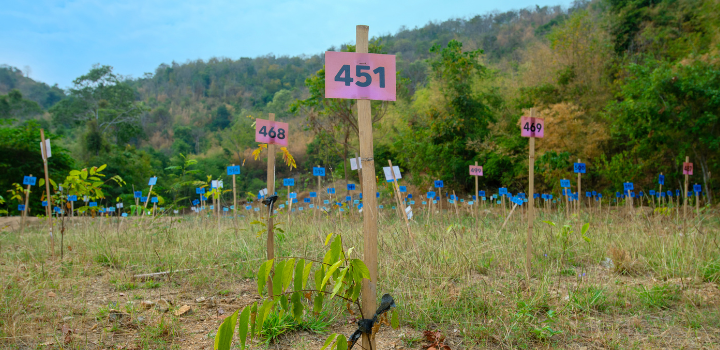UEA in new partnership project to support resilience of East of England’s coastal areas
By: Communications

UEA is part of the ARISE project, which will focus on investigating how to make the East of England’s diverse coastal areas more resilient, and the complex social, economic and governance challenges surrounding this.
The £2.9 million ARISE project – Advancing Resilience and Innovation for a Sustainable Environment – is one of four projects to receive a total of £14.8 million from UKRI and the Department for Environment, Food and Rural Affairs (Defra).
Announced today by UKRI (UK Research and Innovation), ARISE will focus on the Norfolk, Suffolk, Essex and Kent coasts, which include communities from England’s highest and lowest levels of deprivation. This coastal region also has more inequalities in health, wellbeing, life expectancy, earnings and education compared to nearby inland communities.
The project will initially implement 12 new initiatives on the English east coast – ranging from schemes such as educational outreach to civic engagement and arts-based events. Their local impact will then be evaluated to help develop a transferable toolkit of best-practice which can be adapted to offer support and decision-making guidance to different coastal communities depending on their individual needs.
Prof Irene Lorenzoni (Professor of Society and Environmental Change), Dr Johanna Forster (Associate Pro-Vice Chancellor Civic) and Dr Ben Little (Associate Pro-Vice Chancellor Civic) are all UEA collaborators on the ARISE project. UEA academics were specifically approached to collaborate on this project because of their longstanding interdisciplinary research cross-cutting coastal change, environmental social science, and civic engagement practices.
Irene and Johanna are both social scientists and members of the Tyndall Centre for Climatic Research, and together have decades of experience working with coastal communities at risk, in the UK and overseas. Ben and Johanna lead the CivicUEA programme of work at UEA; the ARISE project draws heavily on the work that they have spearheaded using deliberative grass-roots engagement approaches to co-produce and to build trust with communities.
Dr Johanna Forster said: “Drawing on decades of social and environmental research at UEA on the challenges faced by communities living along our dynamic coastline, ARISE provides a timely opportunity to complement this with our commitment as a civic university, and what this means in practice.
“With expertise in democratic civic engagement, we will work with regional citizens and organisations, to co-create initiatives that have the potential to enhance community resilience. We hope that by sharing ideas, concerns and experiences in this way, we can both celebrate the uniqueness of the English east coast, while providing impactful, adaptable tools to support communities to bolster their resilience for the future."
The project team represents the Eastern ARC consortium and will see the UEA team working with partners at the universities of Essex, Aberystwyth, Birkbeck, Kent, Manchester and Suffolk, in addition to the UK government Centre of Environment Fisheries and Aquaculture Science. The aim of the project is to benefit policymakers, local communities, public managers, voluntary groups, researchers, landowners, businesses and residents along the entire UK coast.
Prof Gina Yannitell Reinhardt, ARISE Project Director, from the University of Essex said: “We are all delighted to be collaborating on this important project which will directly benefit coastal communities and the people who enjoy visiting them. We are also dedicated to forging a community of practice that can carry on this work. We will be able to advise policy makers and local organisations on how to continue helping communities fortify their resilience well beyond the life of our project.”
Director of Eastern ARC, Phil Ward, said: “Eastern Arc brings together our universities to work for the benefit of our region and the nation as a whole. Collaborating with other stakeholders within our region – local authorities, businesses, charities and other universities – offers a great opportunity to do even more, and ARISE is a great example of this.
“This is such an important project and is central to one of our key priorities going forward: to address longstanding and future challenges facing our region. Gina has brought together an amazing team, and I look forward to seeing the outcome of the fantastic work they have planned.”
Prof Gideon Henderson, Defra’s Chief Scientific Advisor, said: “I am delighted that Defra, through our Natural Capital and Ecosystem Assessment programme, is contributing to the new UKRI programme on Resilient Coastal Communities and Seas. This is a timely and critical research area requiring transdisciplinary work to understand the links between the coastal environments, economies, and societies.
“Working with coastal communities, the programme will help provide clean, healthy and protected seas while supporting coastal livelihoods. This programme is another great example of close co-working between Defra and UKRI, and builds on our strengthening collaboration and partnership, harnessing the UK’s world-leading research expertise to address the environmental challenges we face.”
Related Articles

Social justice should not be tokenistic but at the heart of global restoration efforts
Social justice must be at the heart of global restoration initiatives - and not “superficial” or “tokenistic” - if ecosystem degradation is to be addressed effectively, according to new research by the University of East Anglia (UEA).
Read more
2025 – a year in research
The past twelve months have seen UEA researchers break new ground on everything from Magna Carta to the mating habits of jaguars in the Amazon. Join us as we take a look back at just some of 2025’s incredible stories, discoveries and expert insights.
Read more
UEA’s grant and funding success – October 2025
Discover the latest research and funding grant successes happening within the University of East Anglia.
Read more